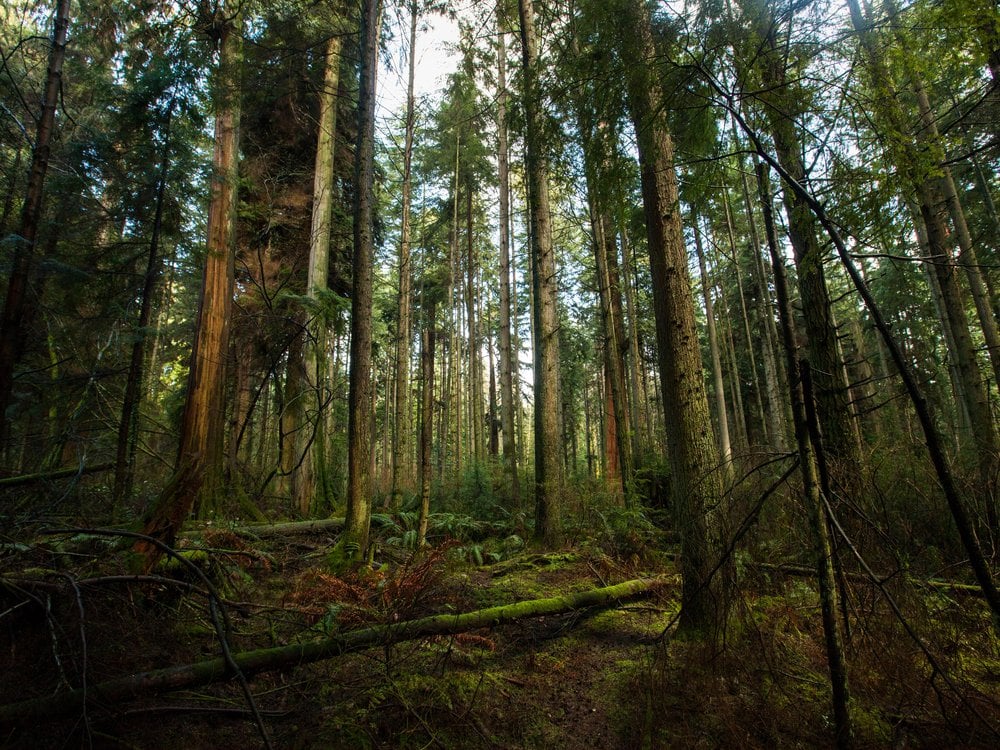In the wacky world of climate alarmism, you just can’t win. Every effect of it is bad, every plan to save civilization without destroying it is doomed, and even having a nervous breakdown is apparently less helpful than it sounds. In which category, we’re now told firmly that it’s no good planting trees to absorb carbon because they might catch fire and whoosh goes all that carbon back into the atmosphere. Time to… time to… what? Abandon mitigation and crush fossil fuels’ tiny heads, apparently.
An acquaintance once had a boss so paranoid that when they finally convinced him someone would be a great addition to the team, the boss blurted out “What if he dies?” And yes, you should not buy a house in case it catches fire, marry anyone in case they turn out to be a rotter, plant tomatoes in case the bunny eats them and generally do anything ever. But if you do, it makes some kind of sense to assess risks in a rational way. Even if it’s no fun, as here. Indeed, we even sometimes wonder whether the proponents of carbon capture are sufficiently concerned that if you stuff gas into a hole in the ground it could perversely leak out again. (We are told you can basically put it back into the places you initially got natural gas from. But what if they crack?)
Once again the study on the burning trees of climate doom appears first as a press release on Eurekalert!, a valuable service even if overloaded with the obvious, like “New research finds that preference for remaining is key to successful immigration”, and the woke, like “Neoliberal policies, institutions have prompted preference for greater inequality, new study finds”). And the actual paper in Ecology Letters by a host of authors including William Anderegg (yes, he of the infamous paper saying there must be a consensus on the man-made climate emergency because people who write a lot of papers saying there’s one say there’s one) warns that if trees don’t stop climate change it will stop them. “Many climate change mitigation strategies leverage forest preservation and expansion, but rely on forests storing carbon for decades to centuries. Yet climate-driven disturbances pose critical risks to the long-term stability of forest carbon.”
Evidently the authors don’t understand that trees are mortal and that as one dies another grows, as they always have. Instead they were apparently meant to be permanent carbon sinks, obligingly petrifying or something. But instead of some rational discussion of the natural cycle of wildfires and regeneration, the overall greening of the Earth and so forth, we get the usual predictions of bad weather and pestilence, in the form of “wildfire and climate stress-driven tree mortality, including a separate insect-driven tree mortality”. Hey, the King James Version it’s not. But the PR department at the University of Utah it is, and they came up with “By 2099, the models found, that United States forest fire risks may increase by between four and 14 times, depending on different carbon emissions scenarios. The risks of climate stress-related tree death and insect mortality may roughly double over the same time.”
Right. Between four and 14 times. You have no idea. And it “may roughly double” or it might not. It could quadruple. Or not go up.
The paper is no more cautious, making assertions like “an unprecedented and climate-fuelled bark beetle outbreak in Canada drove immense swaths of tree mortality and reversed an entire region of boreal forest from a C sink to a C source over a decade with large implications for climate policy”. And no more precise, with assertions like “fossil C emissions persist in the atmosphere for hundreds to thousands of years” as if it were of no importance that this involves a factor of 10 in uncertainty, or that it’s unclear how anyone could know now long “fossil C emissions” hang around since they’re so new.
Then it blabs on endlessly about its models. But to be blunt, we want them to predict wildfires accurately next year before they soar off and predict the consequences of wildfires 77 years from now. As we’ve said before, science proceeds by generating and testing hypotheses, not by arm-waving speculation and yelling.
In that spirit, though we can’t prove we did it, we drafted this piece on the hypothesis that the point was to say we have to get rid of fossil fuels because mitigation won’t work. And only after doing so did we look down at the conclusion of the paper, aka “Discussion”. Sure enough, its final sentence is “Taken in sum, our results increase the urgency and magnitude of response needed for reducing greenhouse gas emissions to mitigate climate change given the increasing risks of climate change to nature-based climate solutions.” Crush their tiny heads!



As a Health and Safety professional, I am often conducting risk assessments, and one of the things I avoid in these assessments are assumptions or theories. They are based on past history and facts, not conjecture or emotions. Without this approach, the recommended controls would be a waste of time if not dangerous.
So we can't plant trees as they may catch on fire and burn.
So how is it ok to cut down trees, grind them up in pellets and feed them into oven to make steam and electricity, and then call it green??